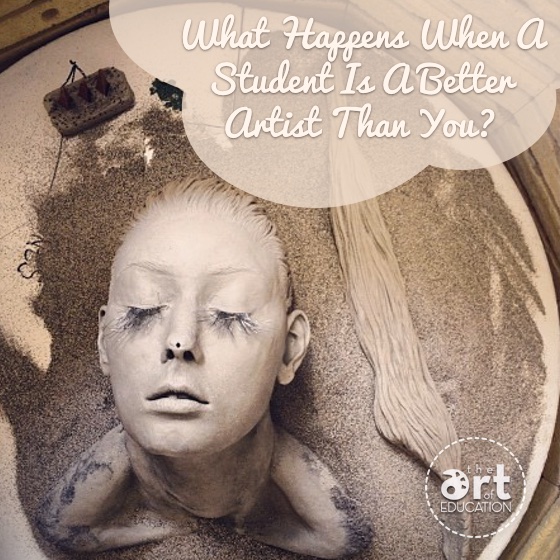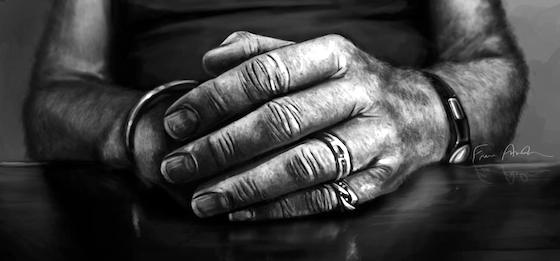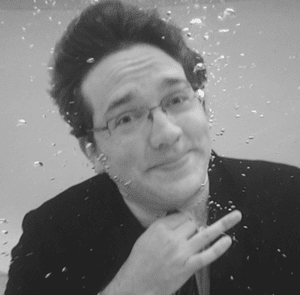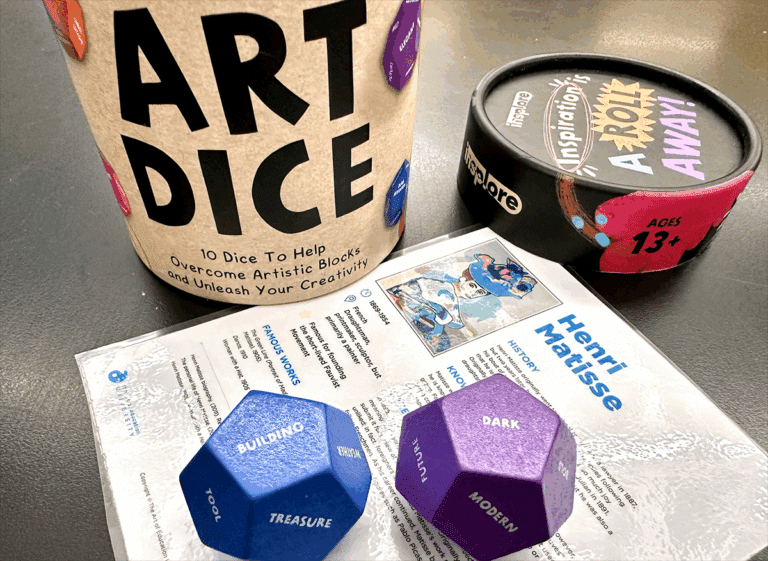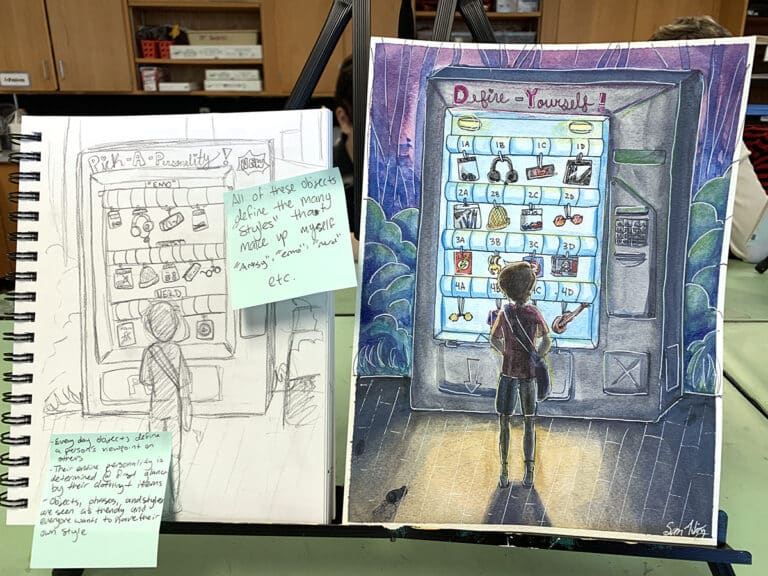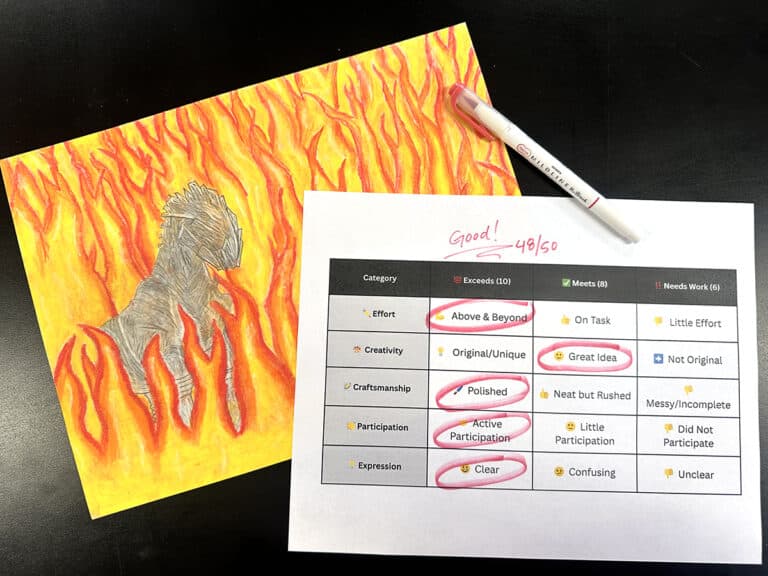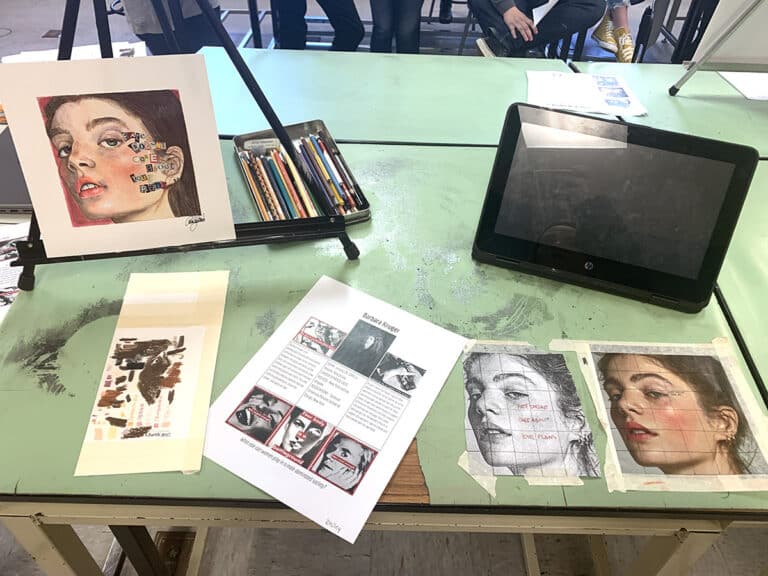Most art teachers are also practicing artists, and we each have our own strengths. We often have students that share those strengths, and we can always help them improve. On rare occasions, however, we have a student come along that is even better than we are with certain media or techniques.
So the question arises: what happens in your classroom when a student is a better artist than you?
I have had three artists come through my classroom fitting this description–all within the course of two years, oddly enough. Looking back, I am glad I was able to see the situation for what it was: a chance for me to improve my teaching, my own artistic skills, and an opportunity to work with supremely talented artists. I’d like to share a little of what I learned about dealing with students working at such a high level.
1. Check Your Ego at the Door
I’ll be honest–when I first ran across a student better than me, it wasn’t easy for me to accept the fact they had that much talent. How? What? Where did this come from? She’s only 17! How is she better than me? It seems odd, as a teacher, to go into class with the knowledge that you’re teaching someone more talented than yourself; but the sooner you can accept that situation as a reality, the better off you will be. Don’t be too proud, and don’t be too stubborn, because you need to see the situation for what it is: an opportunity. For you and your student both.
2. Learn Together
In this kind of a relationship, there may not be a teacher-student methodology any longer. My expert student ceramicist was able to help me improve my throwing, and together we researched crystalline glazes, different ways to trim the foot on various pots, and methods of fitting and finishing lids. Look at different techniques and styles that interest him or her (or interest you, even) and learn those things as a team. You’ll each be better for having gone through that experience.
3. Good Advice is Still Good Advice
Physical talent and impeccable technique don’t always match up with decision-making skills–especially with high schoolers. You will be able to help them with composition, subject matter, and your more experienced artistic eye. One student, as a sophomore, could digitally paint circles around me and everyone else with whom she came into contact. I was able to help with almost every work, however: balance, rhythm, movement, the rule of thirds and more on the technical side, and ideas, brainstorming, and editing on the conceptual side.
4. Get Their Work Out There
You probably do Art Shows for your students already, but can you do anything beyond the school-sanctioned competitions? Look at blogs, online galleries, and other ways to display their work digitally. In addition, some juried exhibitions don’t have an age limitation, or they have an age 18 minimum (which will work for some senior students). Look at both online and brick-and-mortar galleries for these juried exhibitions, and help your students enter when they can. They may or may not get into the show, but allowing them the opportunity to familiarize themselves with the process will only be beneficial in the long run.
Of my three superstar artists that came through my room, one is thriving as a painter in New York, another is on the way to an MFA, and the third hasn’t made any art in the past two years. You never know where they may end up, but you would be remiss to not recognize the opportunity to collaborate with, help, support, and guide a very talented individual. Please make sure you make the most of it.
Have you ever had an art student more talented than you?
How did you handle the situation?
Magazine articles and podcasts are opinions of professional education contributors and do not necessarily represent the position of the Art of Education University (AOEU) or its academic offerings. Contributors use terms in the way they are most often talked about in the scope of their educational experiences.

